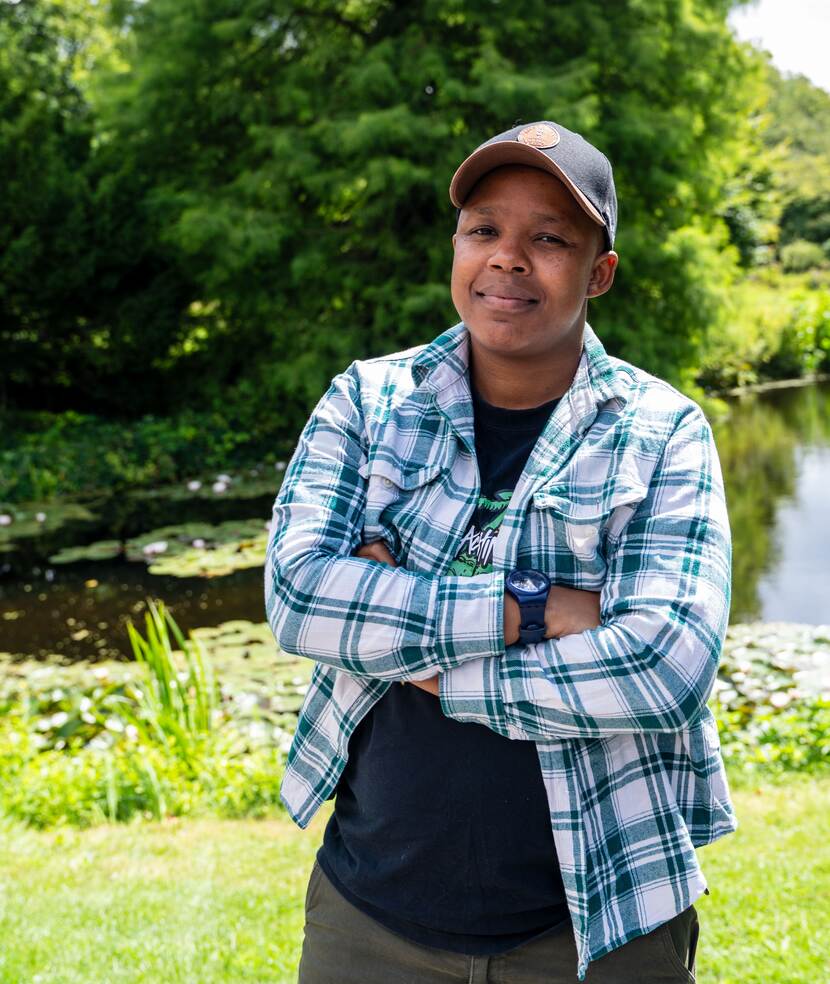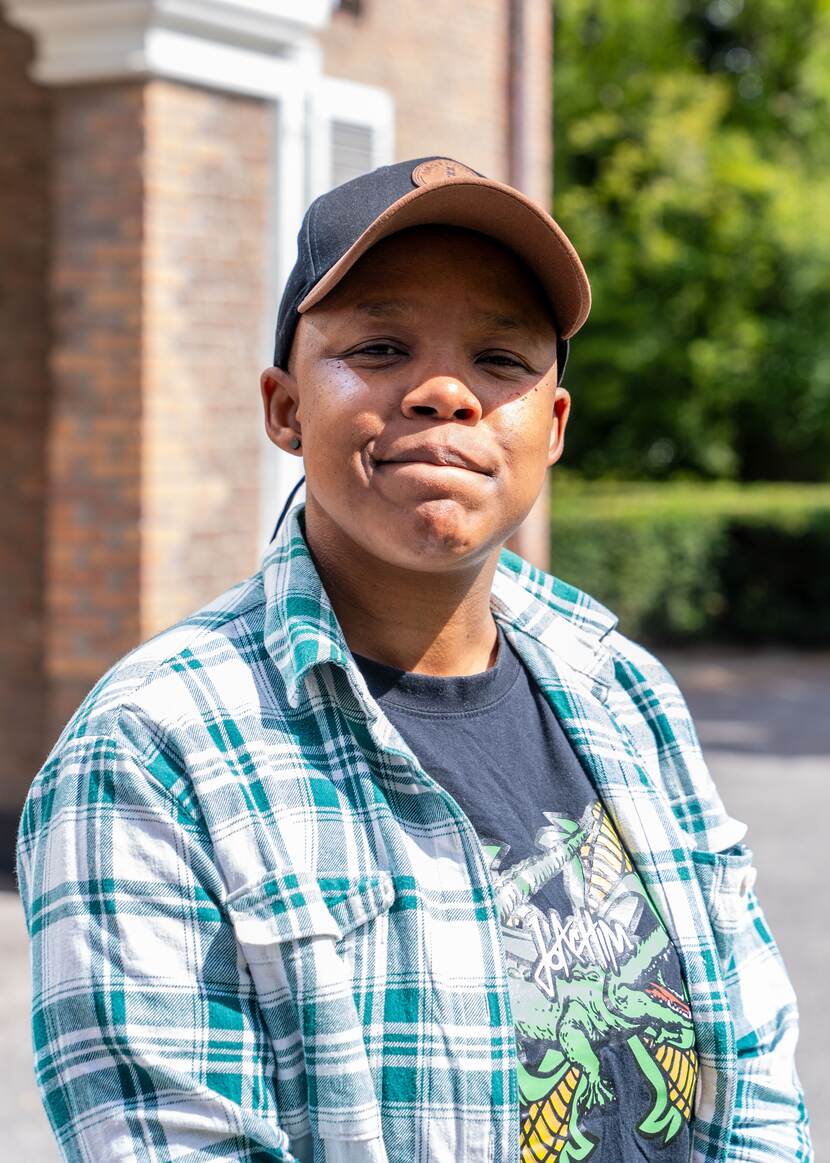Building Bridges: LGBTIQ+ activists from Southern Africa visit the Netherlands
Weblogs
Neo is an activist from Lesotho working to close the gap between what the law says and what actually happens. Last week she was in the Netherlands to exchange ideas and experiences with other activists through Building Bridges, an annual program of the Dutch Ministry of Foreign Affairs. “On paper, we have legal texts. But in reality, it’s the ‘Law of God’ that shapes decisions,” she says.
Last week, she joined a group of fellow activists in the Netherlands to exchange ideas and strategies. The visit was part of Building Bridges, an annual programme organised by the Dutch Ministry of Foreign Affairs. Each year, it brings together LGBTIQ+ changemakers from around the world. The 2025 edition focused on Southern Africa and explored a key question: how do you ensure that legal rights are not just written down, but actually enforced?
Law versus morality
Lesotho is a constitutional monarchy where the constitution guarantees basic rights and freedoms. At the same time, the country identifies strongly as a Christian nation and places great importance on what is locally referred to as the Morality Law. This concept is shaped by biblical teachings and traditional values. Neo explains that in practice, LGBTIQ+ people remain unprotected. “There’s no article that protects us,” she says. “So people act as they wish, often using religion as their justification.”
In recent years, violence against LGBTIQ+ people has become more visible in Lesotho. Many cases involve partners, clients or even friends. “Without legal protection, we are completely exposed,” says Neo. “And the crimes committed against us go unanswered.”
Visible but not accepted
Neo lives in Maseru, Lesotho’s capital, and says she can walk through the city in her full gender expression without facing physical violence. But that doesn’t mean there’s acceptance. “You get comments, assumptions, microaggressions. It happens so often, it’s like background noise to me now.’’
Urban areas, she says, can be more hostile than rural ones. “In villages, people often accept what they’ve always known. There’s a quiet tolerance. In cities, people feel entitled to judge, correct or condemn.”
She’s aware that her experience isn’t representative of everyone. “I have support. I have education. I know who I am. But for someone without that: someone young, isolated, still figuring themselves out, iit’s much harder.”
From the outside in
Neo has been active in the movement since 2018, first as an individual and now through QueerWorx. The organisation focuses on economic development and employment readiness for LGBTIQ+ people. “So much attention has gone to HIV-related work. That’s important, but it’s not enough. People also need jobs, dignity and safety.”
She describes attempts to influence national policy as a kind of political back-and-forth. “You get support from the National Assembly, then it gets blocked in the Senate. Or the other way around. You’re passed back and forth, year after year.”
Still, some changes have been achieved. In 2022, a political party added “other” as a gender option on its membership form after a simple suggestion from Neo. Other parties followed. The conversation then moved to the Bureau of Statistics, which is now considering gender diversity in the upcoming 2026 census.
There have been policy-level wins as well. The national gender policy now defines gender in terms of characteristics, not just binary categories. And the 2024 Labour Code includes sexual orientation as a protected ground under unfair dismissal. “These are small shifts,” she says, “but they give us language to build on.”
Practice lags behind
Despite these gains, the gap between law and practice remains wide. “We have legal recognition in the Labour Code, but most people don’t have formal contracts. Over 80 percent of workers are informal. Even if you're dismissed unfairly, you have no access to justice and no resources to fight it.”
In interview settings, she says, discrimination happens before a contract is even offered. “If my ID says ‘F’ but I show up in a suit, I don’t get the job. That’s it. No appeal, no complaint procedure. Just silence.”
That’s why her work with QueerWorx focuses on broader inclusion, not just legal rights. And when engaging with policymakers, language matters. “We often talk about ‘vulnerable groups’ rather than ‘LGBTIQ+’. It’s not ideal, but it helps keep the door open.”
Lessons from across the region
Building Bridges offers a space to step back and exchange ideas. “It’s good to realise that we’re not alone. Kenya, Rwanda, for instance, they face different challenges, but the same dynamic: laws exist, but enforcement is weak or absent.”
One idea that stood out was institutional training. “In Lesotho, the police are trained to catch criminals, not protect minorities. That mindset starts at the academy. If we want change, it has to be built into those systems.”
Regional solidarity
Asked what comes next, Neo mentions three priorities: legal gender recognition, mandatory human rights training for public servants, and integrating LGBTIQ+ inclusion into workplace practices. But she also recognises the value of each small step. “Every form you change, every term you introduce, every official you convince: it matters.”
As the 2025 Building Bridges programme wraps up, the most lasting impact may be the network itself. “We’ve shared experiences, tools, strategies. We’ve learned from each other. And that gives strength to keep going.”

